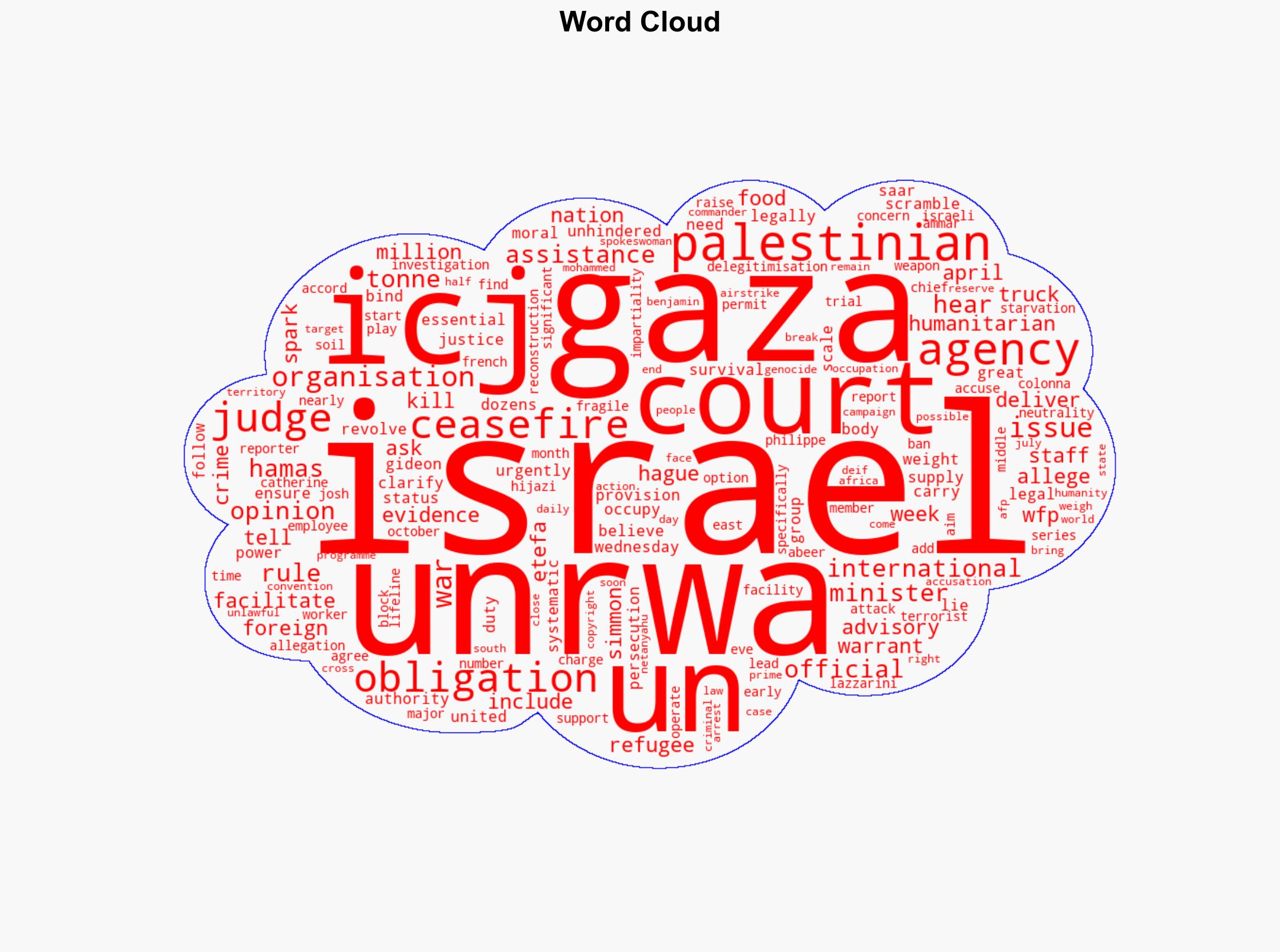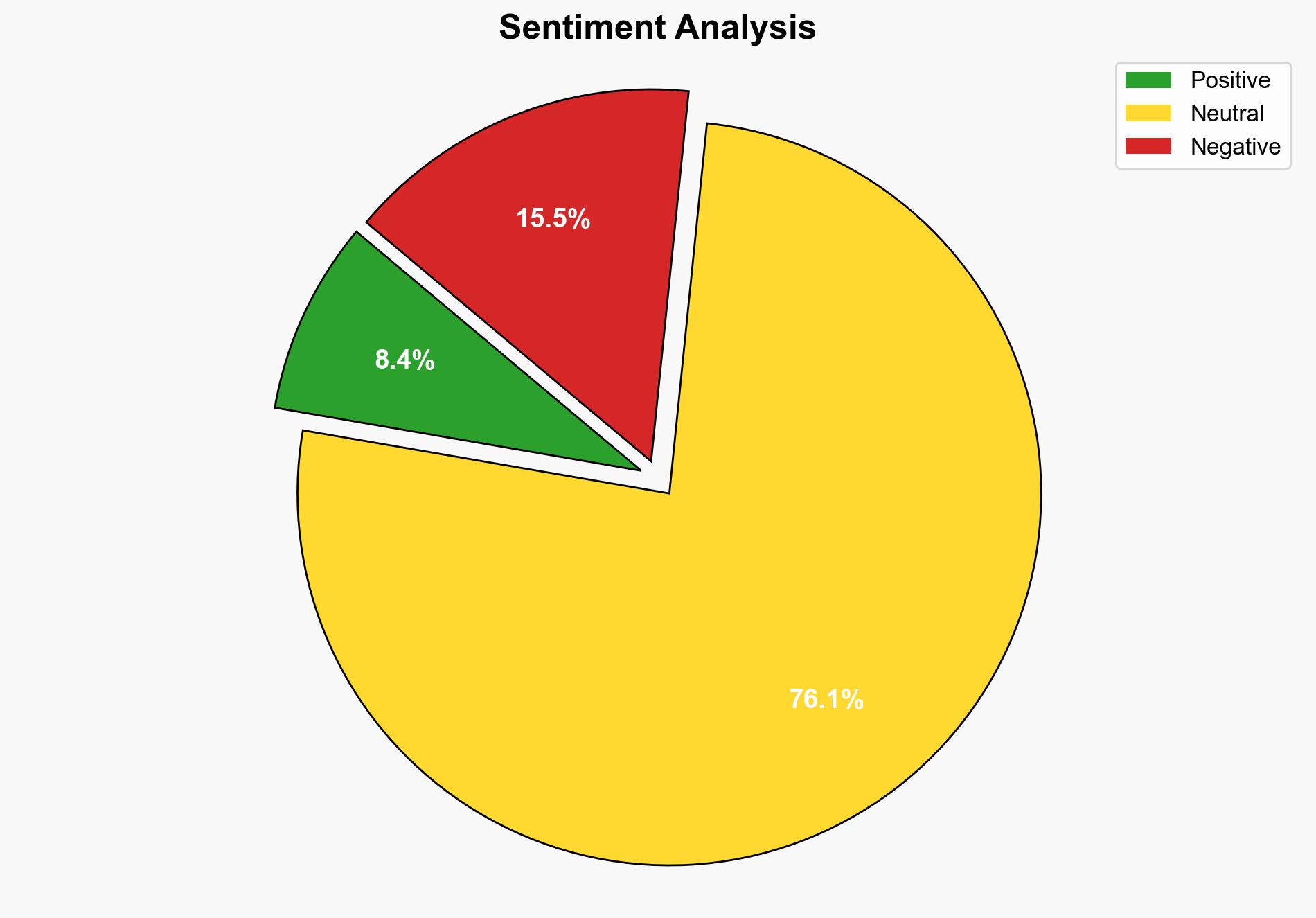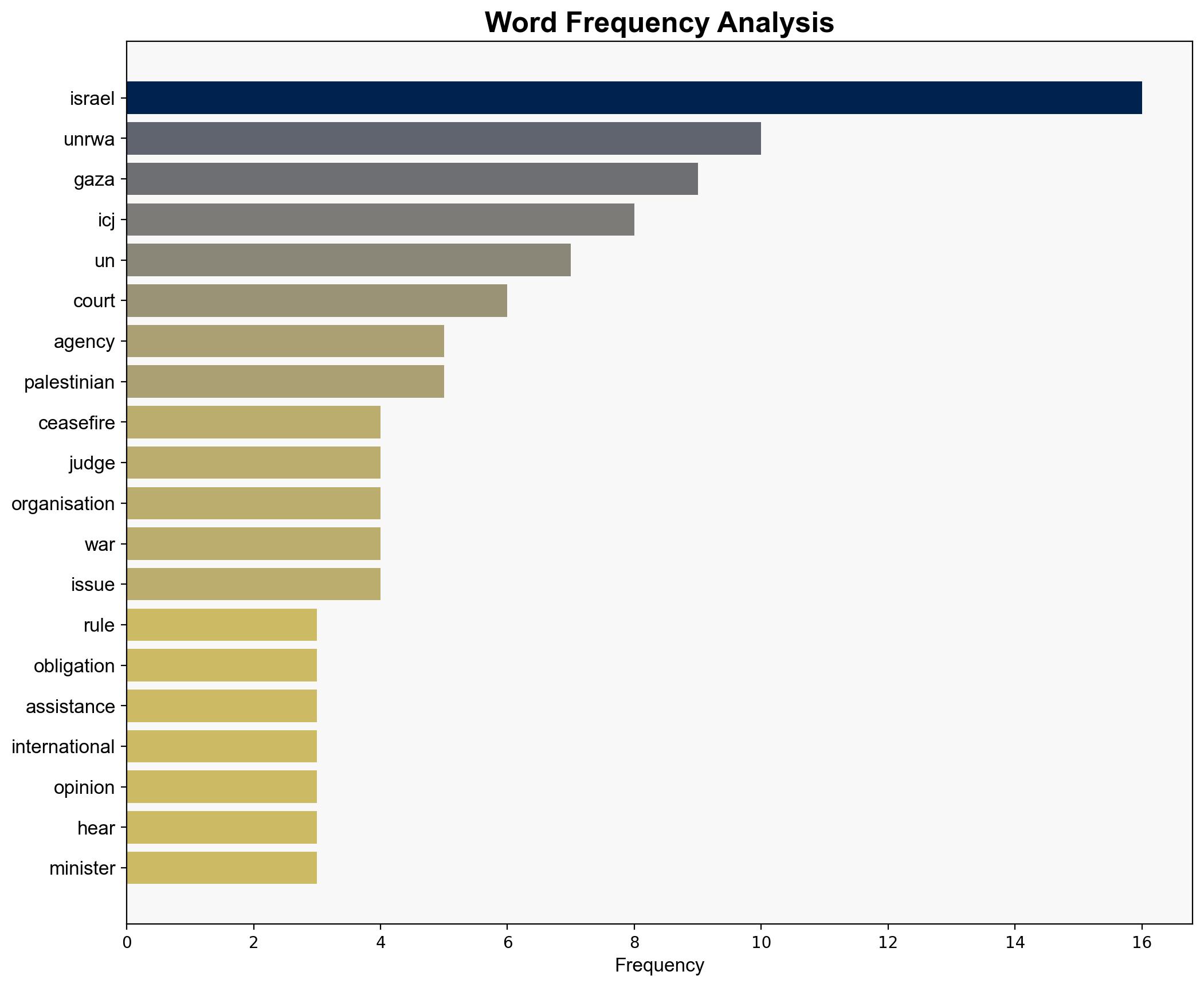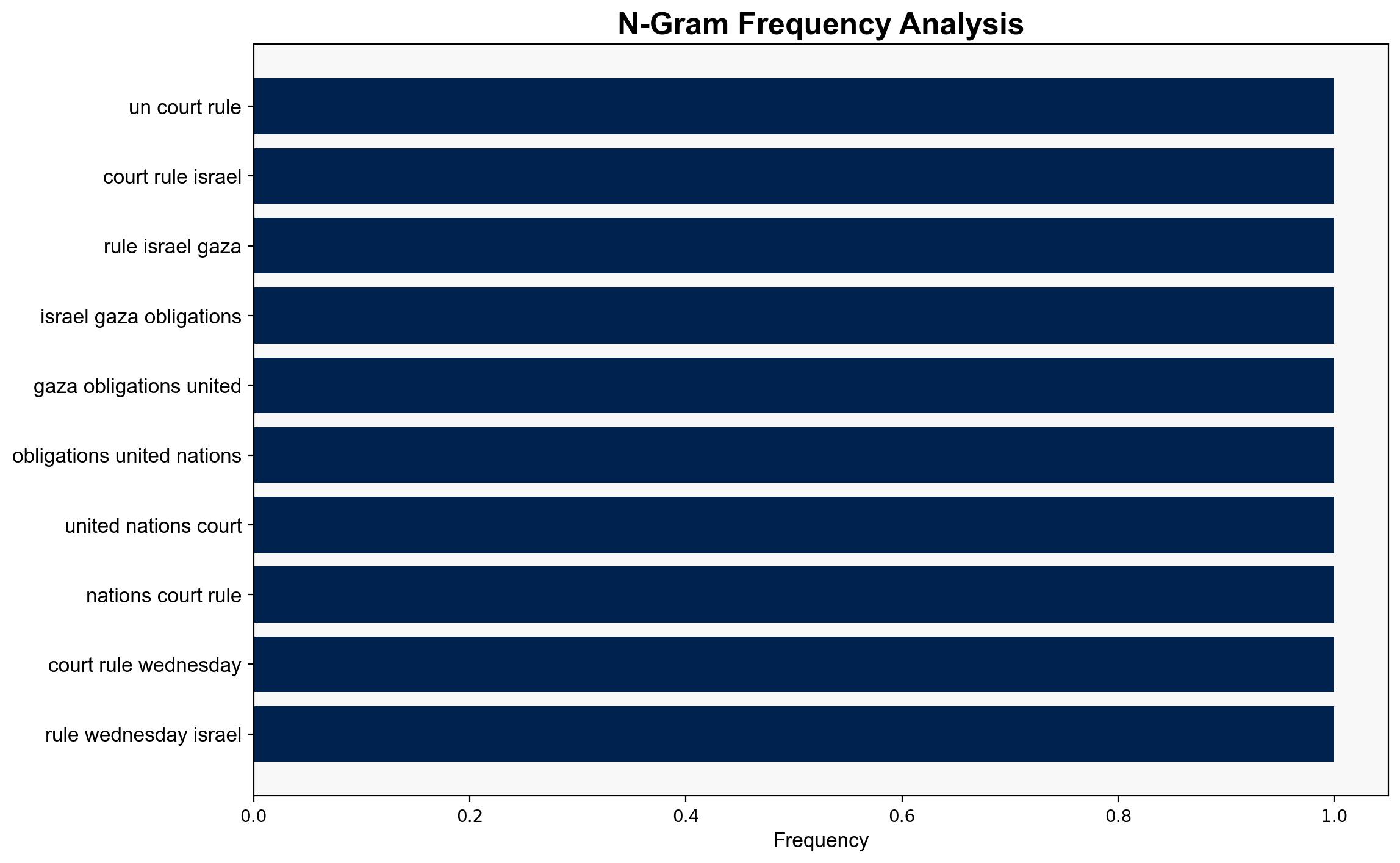Top UN Court To Rule On Israel’s Gaza Aid Obligations – International Business Times
Published on: 2025-10-22
Intelligence Report: Top UN Court To Rule On Israel’s Gaza Aid Obligations – International Business Times
1. BLUF (Bottom Line Up Front)
The International Court of Justice (ICJ) is set to deliver an advisory opinion on Israel’s obligations regarding humanitarian aid to Gaza. The most supported hypothesis is that the ICJ will emphasize Israel’s duty to facilitate aid, given the legal and moral weight of the court’s advisory opinions. Confidence level: Moderate. Recommended action: Monitor the ICJ’s ruling and prepare for potential geopolitical and humanitarian responses.
2. Competing Hypotheses
Hypothesis 1: The ICJ will rule that Israel has a clear obligation to facilitate humanitarian aid to Gaza, reinforcing the UN’s stance on Israel’s responsibilities as an occupying power. This hypothesis is supported by the historical context of ICJ advisory opinions and the UN’s consistent position on humanitarian access.
Hypothesis 2: The ICJ will issue a more nuanced opinion that acknowledges Israel’s security concerns while still urging for increased humanitarian access. This hypothesis considers the complex geopolitical dynamics and security threats Israel cites, such as allegations against UNRWA employees.
3. Key Assumptions and Red Flags
Assumptions: The ICJ’s opinion will influence international policy and Israel’s actions. The UN and ICJ maintain impartiality in their assessments.
Red Flags: Potential bias in UNRWA’s operations as alleged by Israel. The possibility of Israel not complying with the ICJ’s non-binding opinion. Inconsistent data on the actual impact of aid restrictions.
4. Implications and Strategic Risks
The ICJ’s ruling could escalate tensions between Israel and the international community, potentially leading to increased diplomatic isolation for Israel. There is a risk of further destabilization in Gaza if aid access remains restricted. Conversely, compliance with the ICJ’s opinion could improve humanitarian conditions and reduce regional tensions. Economic sanctions or international pressure could be leveraged against Israel if non-compliance is perceived.
5. Recommendations and Outlook
- Monitor the ICJ’s ruling and Israel’s response closely to anticipate shifts in regional alliances and international relations.
- Engage in diplomatic dialogue to encourage compliance with humanitarian obligations while addressing security concerns.
- Scenario Projections:
- Best Case: Israel complies with the ICJ’s opinion, leading to improved humanitarian conditions and reduced tensions.
- Worst Case: Non-compliance results in international sanctions and further conflict in Gaza.
- Most Likely: A partial compliance scenario where Israel allows some aid but maintains security restrictions.
6. Key Individuals and Entities
Gideon Saar, Catherine Colonna, Josh Simmons, Ammar Hijazi, Philippe Lazzarini, Mohammed Deif, Benjamin Netanyahu.
7. Thematic Tags
national security threats, humanitarian aid, international law, Middle East conflict





